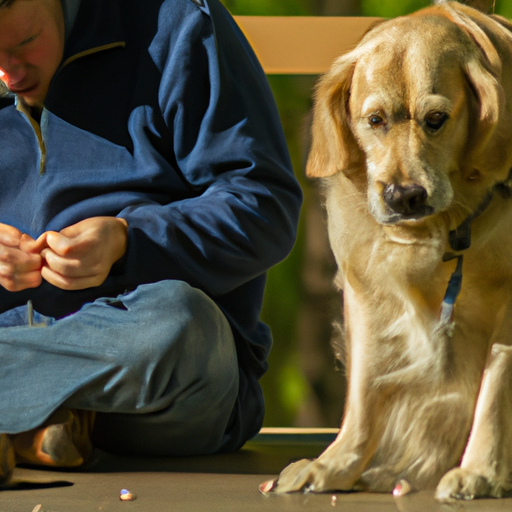Understanding Canine Behavior
Firstly, you must understand that your dog’s behavior reflects its physical health and well-being. Just like humans, dogs can manifest stress, anxiety, or discomfort through certain actions. Nail biting or chewing is one such behavior. It might seem like an innocuous habit, but it can sometimes be a sign of underlying issues.
Reasons Behind Nail Chewing
There are several reasons why your beloved pet might resort to chewing its nails:
- Boredom: Dogs get bored easily, especially if they are left alone for long periods. Chewing on their nails can be a way to pass the time.
- Anxiety/Stress: Much like humans, dogs can experience anxiety and stress, which can result in nail-biting behavior.
- Pain or Discomfort: If your dog has an injury to its paw or a splinter lodged in its foot, it might try to alleviate the discomfort by chewing its nails.
- Parasites: Fleas, ticks, or mites can make your dog’s paws itchy, causing them to bite their nails.
- Allergies: Dogs can be allergic to certain foods, cleaning products, or environmental factors, which can lead to itchy skin and subsequent nail biting.
If you notice your dog chewing its nails frequently, it’s time to play detective and figure out the root cause.
The Health Implications
Chronic nail biting can lead to several health problems in dogs:
- Infections in the paws
- Bleeding and pain from over-chewed nails
- Damage to their teeth
| Health Issue | Symptoms |
|---|---|
| Infections | Redness, swelling, pus |
| Over-chewed nails | Bleeding, visible discomfort |
| Dental problems | Difficulty eating, bad breath |
How to Help Your Dog
Once you’ve identified the cause of your dog’s nail biting, you can take several steps to help:
- Ensure regular exercise to stave off boredom.
- Create a calm environment for your dog to reduce anxiety.
- Regular grooming and nail trims.
- Use of parasite preventatives.
- Consult a vet for possible allergies.
FAQs
Q: How often should I trim my dog’s nails?
A: Generally, a dog’s nails should be trimmed every 3-4 weeks, but it depends on the breed and lifestyle.
Q: Are certain dog breeds more prone to nail biting?
A: No, all breeds can exhibit this behavior, although it may be more noticeable in breeds with longer nails.
Q: When should I take my dog to the vet for nail biting?
A: If the nail biting is frequent, causing visible discomfort, or is accompanied by other symptoms, it’s time to consult a vet.
Remember, as a caregiver, your careful observation and intervention can make a world of difference in your dog’s life. If nail chewing persists despite your best efforts, never hesitate to reach out to a professional for help.



